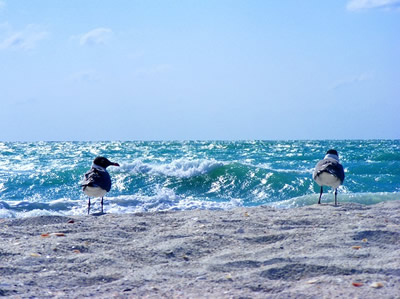
Relationships and Recovery

Relationships and Recovery go together
Relationships and Recovery from addiction
Relationships and recovery go hand in hand. I would go as far to say that the quality of your relationships will equal the quality of your recovery!
Let me put it another way. The effort, open mindedness and courage that you are willing to bring into your relationships will reflect the progress you make in your recovery. That is how important relationships are in your plans and efforts at recovery. Read on if you want to know more about how this works.
I thought it would be a good idea to try and create some clarity on this subject, particularly for anyone following and practicing my own approach. At the end of blog you should know what I think about this subject and what I advise for those in early recovery.
Don’t give up on relationships!
Most of the ‘YouTube’ wisdom these days bothers me. Most of the advice is telling you to ‘get out’! To listen to some of it you would think they had married an axe murderer! Now call me an optimist but there is a very good reason why I try my best to ‘reconnect’ couples who I work with and it’s to do with the phenomenon of attraction itself. To describe this I always use the idea of icebergs!
Icebergs and attraction
No I am not saying people are cold or anything like that! It’s more to do with the unconscious. Icebergs are seven eighths under water. Picture two icebergs in the sea as two people meeting. The eighth that you can see above the water is the look of a person, their speech, clothes and everything else you can see and hear etc. But whilst you are looking at each other above the water, there is much more of us saying hello under the water! Remember the seven eighths under the water is meeting too! This underwater ‘psychological shape’ of each person can ‘fit’ with the other or can ‘jar’ with the other.
When you meet someone you are attracted to you ‘psychologically fit’ with the other person. You feel ‘attraction’. When you meet someone who ‘rubs you up the wrong way’ you have a bad fit (remember those times when you just think “I can’t stand them” for no obvious reason? Well now you know why. We cannot ‘see’ the unconscious (underwater) and so we experience a good ‘fit’ as attraction. Like two jig saw pieces that make a perfect picture!
If you do not change you will continue to be attracted to the same psychological ‘type’. This is why a lot of people who see leaving or ending the relationship as a strategy find themselves in another relationship but with the same issues! Clearly this is a fruitless strategy and why we see so many unhappy people who seem to keep ‘finding’ the same person again and again!
The key is always to change you, you are the only one you can control! Then you will be attracted to and be attracted by someone of a different psychological type. Of course changing is not always easy.
Narcissism and co-dependency
Of course in addiction and recovery we are going to be talking about Narcissists and co-dependents and the way they are attracted to each other. Using the model above you can see that there is a perfect fit between your self as the narcissist and the co-dependent or the other way round. It never ceases to amaze me whenever I see these two types meet. They look like they are in heaven! All their prayers have been answered!
I cannot tell you how many times I have tried to persuade a couple like these to at least suspend their relationship until they finish treatment! I have to tell you that I was never successful. A couple in this state cannot listen to anyone. They must have their way! Even though they have spent thousands on their treatment, they give it up in an instant to be with their perfect partner (or so they think).
Missing the greatest opportunity for growth
The simplistic answer to ‘GET OUT’ of the relationship is missing a vital part of the picture, which is that we are still talking about genuine attraction, and for reasons that would take much too long to go into here, this means that there is an opportunity for growth inside the realtionship that will present itself in no other way!
One of the saddest moments of my working life as a recovery counsellor in residential rehab was working with someone who had taken this advice to the extreme. Having had two serious relationships in her life which both turned out to be raving alcoholics she worked out that she was co-dependent. Putting two and two together she came to what seemed to her to be a logical solution, never have another relationship! Simply giving up on relationships means you will miss out on one of the main opportunities in your life to grow personally.
Being abused does not help you grow
Now let’s make sure we cover one really important point here. You need to keep your self safe. You should leave if you are being consistently abused and are constantly in danger of your life. But to say that you should leave because your partner suffers from a condition and is not interested in improving, or shows no sign of recovering? Well, if they had cancer or Alzheimer’s would the advice remain the same? Remember if you are married, it does say ‘in sickness and in health’ doesn’t it?
Starting your recovery started in a hostile environment where the partner is undermining your efforts and not supporting you is the greatest challenge in recovery. But that is often the best way! Without that level of challenge a lot of people just roll along with an underdeveloped recovery that cannot take any pressure.
Difficulties can be our best Teacher
Using your difficulties to grow is the only way your recovery will work. Developing something that will work in any circumstances. Well, the family home now seems like the ideal place to develop such a thing! Remember Recovery and relationships go together!
If you have a tendency to be overly helpful and ‘co-dependent’ the best place to learn about boundaries and self love and all the rest of it is in the company of someone who will test those new strategies and developments, that sounds like your partner!
The ‘alternative to rehab’ service keeps you at work and at home with your family. My experience has been that if you are willing to learn to use the challenges that face you to grow and to learn about your self you are setting yourself up to succeed .
Thanks for taking the time to read this. Till next time.

A2R – Podcast – It starts with your state
Have you ever done or said something that you later regretted? Of course you have. But when we find ourselves doing this all the time it can be a nightmare. Actually this is the typical experience of addiction! Listen to this Podcast to get an understanding of how to change things for the better if this is how things are for you.

A2R Blog – Risk
 Hi. Thanks for taking the time to read this. We are on a journey of change from an unhealthy pattern of living to a healthier pattern of facing and processing difficulties. By doing this we simply ‘outgrow’ our problems! How do we do this exactly? Today I want to give you a method of working with your security and how it relates to your growth! By the time you have read this you will have a better grasp on security and how to manage risk!
Hi. Thanks for taking the time to read this. We are on a journey of change from an unhealthy pattern of living to a healthier pattern of facing and processing difficulties. By doing this we simply ‘outgrow’ our problems! How do we do this exactly? Today I want to give you a method of working with your security and how it relates to your growth! By the time you have read this you will have a better grasp on security and how to manage risk!
Firstly let me say that this subject and method will not apply to everyone! In a way every subject is like a door that you can go through either way. Take anger for instance, most of us maybe need to be less angry, but there are some of us that need to get more angry! It is best thought of as learning to be ‘managing’ your anger. Risk is the same, we need to manage it. If you are struggling with a chaotic lifestyle your management of risk is going to look very different from someone suffering with OCD. Of course the obvious example here is a gambling addict, we are going to take for granted that their level of risk is off the charts and in terms of their addiction needs to reduce, but the same could be said about alcoholics who take the chance that they can sober up before an important meeting etc. Even gamblers need to take more risks! By the time you have finished reading this you will understand why I said that, so let’s make a start.
What is risk? At its most basic (which is where we always start) it is choosing a path where we could gain something but we could also lose something. So the first question is where are you with risk? Ask yourself how you handle situations, social, financial, romantic, career, communication etc. This will give you an idea which way you need to go through this door.
Now, look at yourself. What is it that you cannot risk? Are you a people pleaser that cannot risk people not liking you? Are you a workaholic that cannot risk people thinking that you are not giving 100%? Are you someone with low self esteem that cannot risk rejection? Are you someone with anger issues that cannot risk conflict? Are you someone with fear issues that cannot risk conflict? Have you taken a role in your family that makes it impossible to risk disharmony? Have you developed a fear of discomfort so you cannot risk being uncomfortable? Have you developed a belief about the dangers of the world that makes it impossible to risk going outside?
If you think about the concept of balance (see the podcast ‘balance’ on this web site) this is a very good way of thinking about risk! Just see yourself as perfectly balanced. You are standing well, on both feet. Maybe see the wind coming, but you are still balanced. Maybe see someone pushing you, but you are still balanced. Now, we can describe this position as a ‘stable platform’ without this we can do nothing. It is from this stable platform that we can think about risk, you see, if you achieve balance that’s great, but as soon as you achieve it you have got everything you can from it. The next stage is to think about risk. In this picture risk is seen as walking. Think about it, when you walk you lose your balance on purpose! The act of walking is a constant process of losing your balance and regaining it by rebalancing in a different place (one step forward).
So think about risk today, ask yourself these questions;
1 In which areas of my life do I need to be risking more?
2 In which areas of my life should I be risking less?
3 If I take a risk in my chosen area what might it cost me?
4 Am I ready to risk losing that?
5 If I take a risk in this area what might I gain?
6 Does this seem worth the risk?
7 How can I manage the level of risk involved?
Remember, you can’t do anything without risking something. Let’s finish today by looking at a typical risk situation.
Steve is a workaholic. He has his personal/work boundaries all meshed together. This leads to other forms of addiction such as drinking, drug taking and internet porn. He is thinking about risk now and sees that he needs to risk in the area of personal relationships. As he considers this he realises that what he will be risking most is his reputation with work colleagues and bosses if he takes time to socialise. He asks himself if he is ready to pay this price. He has worked tirelessly to create this image in their eyes. He realises that he is not yet ready to do this but feels that the exercise has helped him understand himself better, his weaknesses and his strengths. He will look again at this idea as part of his commitment to recovery.
Of course, like all these processes it is the commitment to practice that counts, not just the knowledge. I hope that helped you. Please email me with any questions.
Thanks again for taking the time today.
